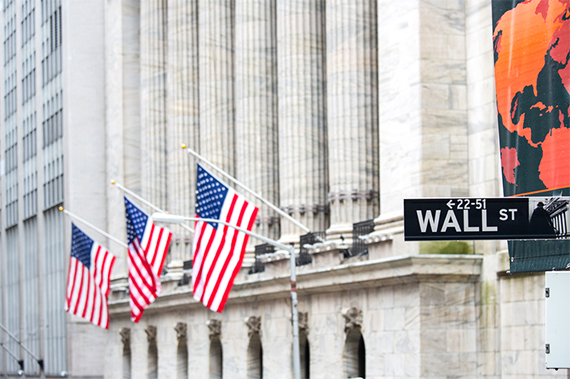Beginning in January, Republicans will have their largest majority in the U.S. House of Representatives since World War II along with a new majority in the Senate. They have already signaled that one of their first priorities will be to repeal or cripple regulations that are supposed to keep our economy stable, protect Americans' money and jobs, and prevent Wall Street consumer fraud and abuse.
As we all remember too well, our economy crashed in 2008 because of a lack of regulation of the financial industry. More than 8 million people lost their jobs. Retirees lost savings. Homeowners saw property values plummet. School systems had to cut teachers and increase class sizes as budgets diminished.
To try to prevent future economic disasters, the 2010 Congress, controlled by Democrats, passed a Wall Street reform bill (often referred to as "Dodd-Frank"). This bill provided some important safeguards to unregulated, shadowy trading and curbed some of the worst abuses of a mortgage lending industry that had preyed on consumers.
Republican members of Congress, spurred by Wall Street lobbyists, filibustered the bill in the Senate and fought it every step in the House. Despite overwhelming bipartisan public support for reform of Wall Street, less than two years after rampant speculation touched off a nationwide recession, only one Republican in the U.S. Senate and three in the U.S. House supported the final bill.
Ever since its passage, Republicans have made undoing these safeguards a top priority. Here are three vital pieces of the bill in danger of losing funding or an outright appeal with Republicans in charge:
1. Consumer Financial Protection Bureau
One fact that emerged from the crisis was that no agency had the bottom-line responsibility of protecting American consumers of financial products. The Consumer Protection Bureau (CFPB) was established to centralize accountability within a single federal agency for the enforcement of financial consumer protection laws.
The new financial protection agency has three responsibilities. It enforces laws involving credit cards, home mortgages, student loans, or payday lenders. It educates consumers and answers their questions about their rights. And it identifies patterns that may require additional federal action. It also has an Office of Servicemember Affairs that forced the financial agency Sallie Mae to return $96 million in student loan fees it overcharged members of the military.
Establishment of the CFPB was strongly opposed by Wall Street. After the agency began operations, Republicans pushed legislation that would change the way the agency is run and financed. Their goal was to remove the CFPB's independence and undermine its effectiveness. But they could not get their bill through the Democrat-controlled Senate.
2. The Volcker Rule
With their new majority in the Senate, along with the House, a second Republican priority will be repeal of the so-called "Volcker rule" contained in Dodd-Frank that stops banks from engaging in risky "proprietary trading" in stocks, currencies, commodities, or other financial instruments. This rule is supposed to ensure that banks don't use the money that you have deposited with them to engage in risky speculation for their own profit. It also is supposed to prevent Wall Street from continuing to sell risky investments to pension funds, city governments, or other clients while using a bank's own money to bet against those same investments.
3. The Derivatives Rule
Also expect the new majority in Congress to try to repeal a Dodd-Frank rule that is supposed to regulate banks' involvement in transactions involving "derivatives." Speculation in derivatives based on home mortgages helped cause the collapse of financial giants Bear Stearns, Lehman Brothers, AIG, and other firms, fueling a broader economic catastrophe and leading to massive taxpayer bailouts. Derivatives can be employed smartly by banks, but they should be strictly regulated to avoid the worst abuses of the past. Intense lobbying has already slowed development and implementation of this rule past its intended date.
In the coming months, consumers will need to make their voices heard. President Obama will need to be encouraged to hold the line by using his veto power. The Democratic leadership in the House and Senate must be urged to stand up.
In addition, responsible leaders in the business community must speak on behalf of our customers and help prevent another crash that would bury us all.
Business in America should be based on who has the best products and who puts consumers first -- not on who can engage in the riskiest practices or wield the greatest political clout to avoid oversight.
We've seen what happens when Wall Street is allowed to set the tone in Congress. We must all work together to keep from going back to those days of disaster.
